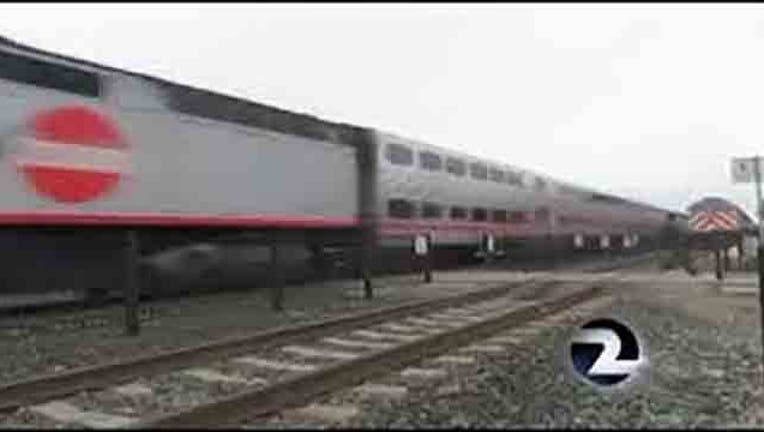Air quality board approves funding for Caltrain electrification

SAN FRANCISCO (KTVU and wires) -- he Bay Area Air Quality Management District board has approved $20 million in funding for a Caltrain electrification project expected to greatly reduce emissions and allow for expanded passenger service.
The funding, to be paid out in installments over the next several years, will go toward the electrification of 51 miles of track between San Francisco and San Jose and the replacement of Caltrain's 29 diesel locomotives with electric models.
The project will allow Caltrain to increase service from the current 92 trains a day to 114 a day, taking additional cars off the road, while reducing emissions by up to 97 percent by 2040, according to a report
from Jack Broadbent, executive director of the air district. Caltrain also expects to reduce fuel use by an estimated 3.4 million gallons a year.
"This is one of the most significant air pollution reduction funding projects the Air District has undertaken in recent years," Broadbent said in a statement. "By replacing diesel-powered trains with electric, air quality will be substantially improved for everyone along the Peninsula train corridor."
Caltrain's board approved the final Environmental Impact Report in January this year and expects to call for bids from contractors later this year, with service on the electrification project set to start by 2020.
The $1.53 billion project still needs to find $430 million in additional funding. Caltrain spokeswoman Jayme Ackemann said the agency is working to secure that funding from state and federal sources by later this year.
In addition, the Town of Atherton and two advocacy groups filed a lawsuit in February challenging the environmental impact report. The lawsuit claims that the report didn't adequately study the project's impact on traffic, station configurations, tree removal and electricity demand, among other issues.
Caltrain had hoped to bypass the lawsuit by asking the federal Surface Transportation Board to find the project was exempt from state environmental review requirements. However, earlier this month the board ruled that it did not have jurisdiction over the project because it is limited to commuter rail operations.
Ackemann said the lawsuit was not expected to prevent the project from moving forward.
Caltrain has seen ridership, which was at 58,000 boardings a day as of February, increase 71 percent in the past five years. Projections show boardings could exceed 100,000 a day by 2040 with the new electrified system in place.
Funding for the $20 million grant to Caltrain comes from a $2 per vehicle motor vehicle registration surcharge collected by the air district.
The California High-Speed Rail Authority has committed more than $700 million to the Caltrain electrification project, and the electrified system is designed to be compatible with high-speed rail. However, Ackemann said the authority will need to complete it's own environmental impact study before it can move forward with any work on the Peninsula.

